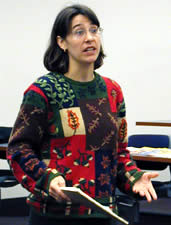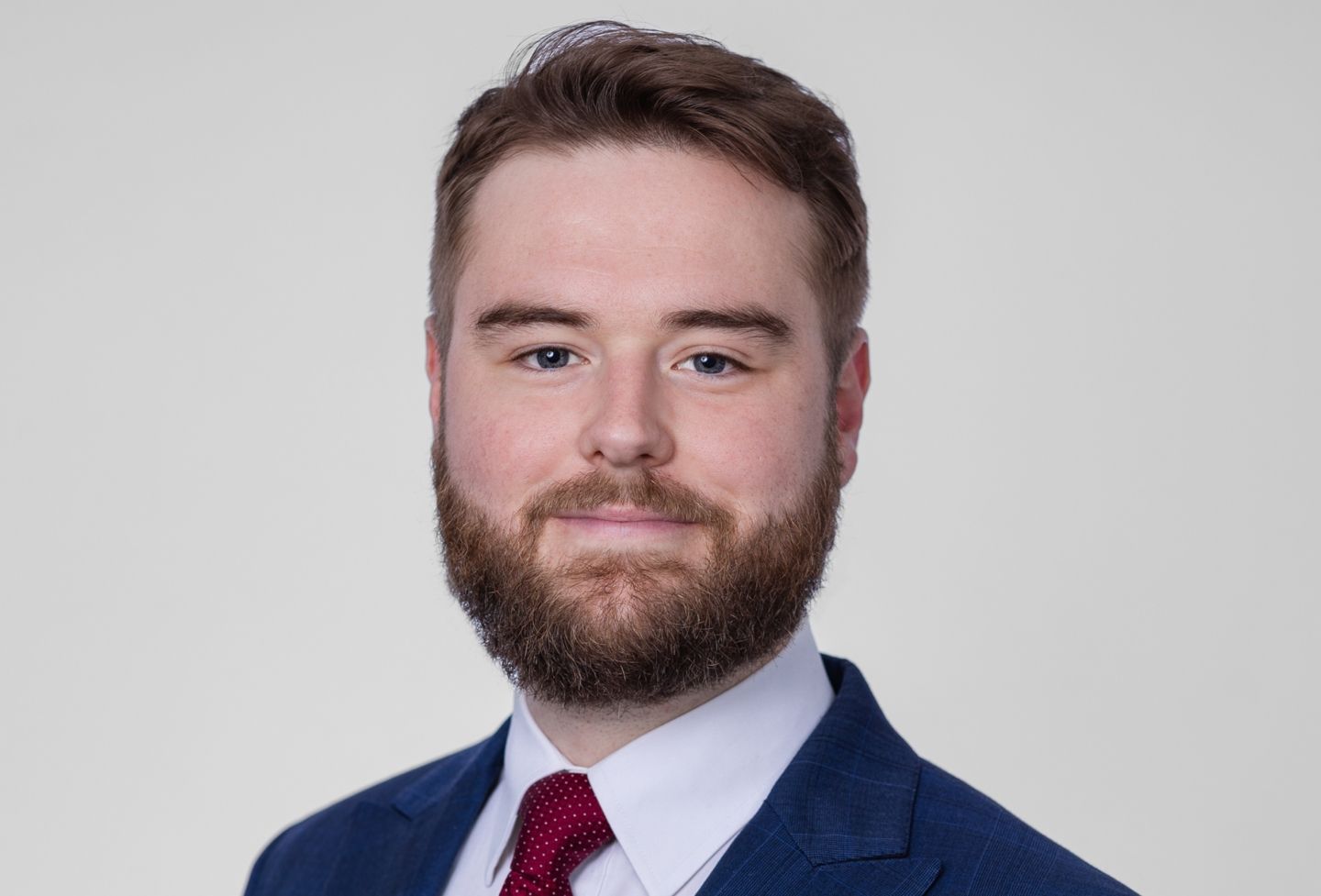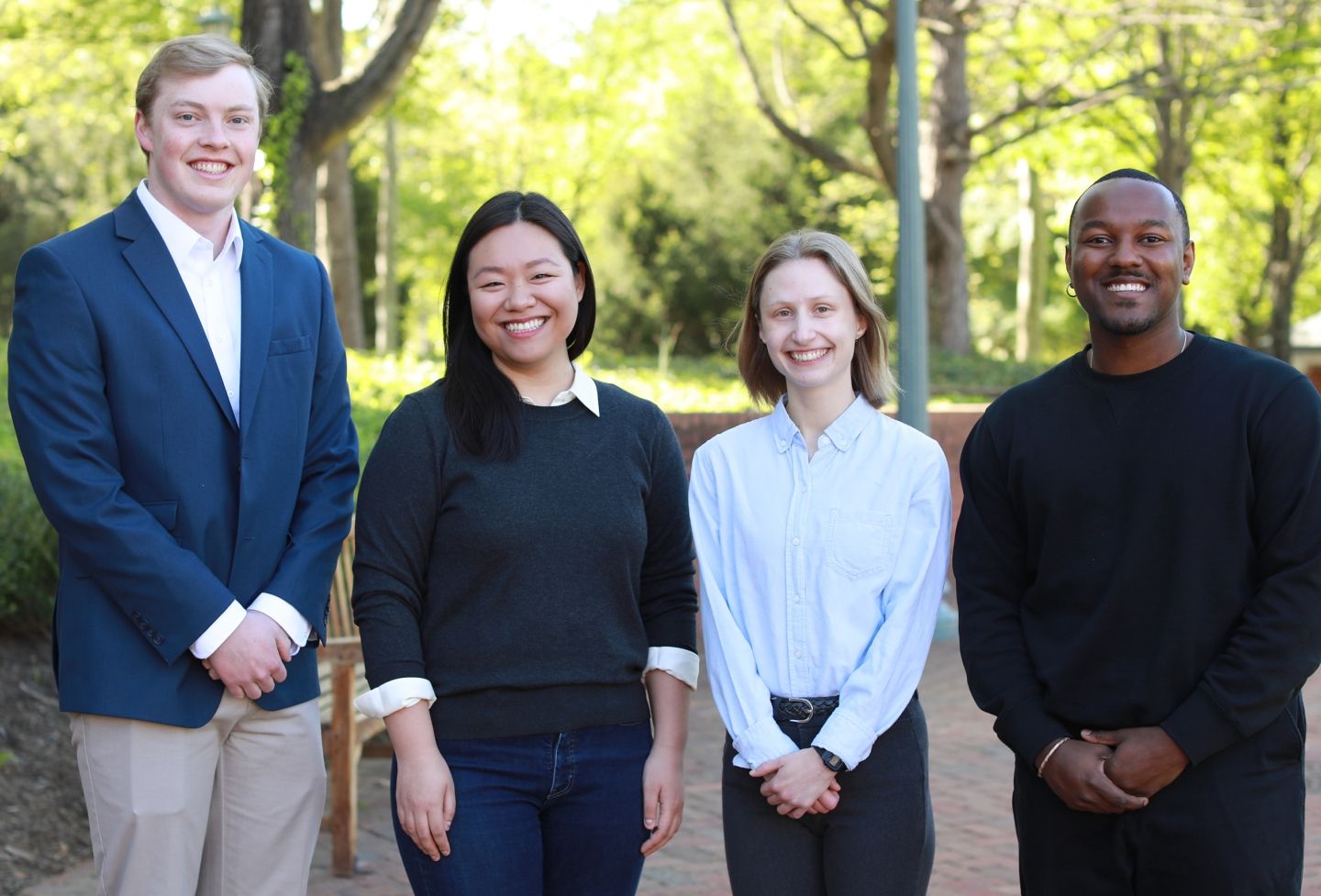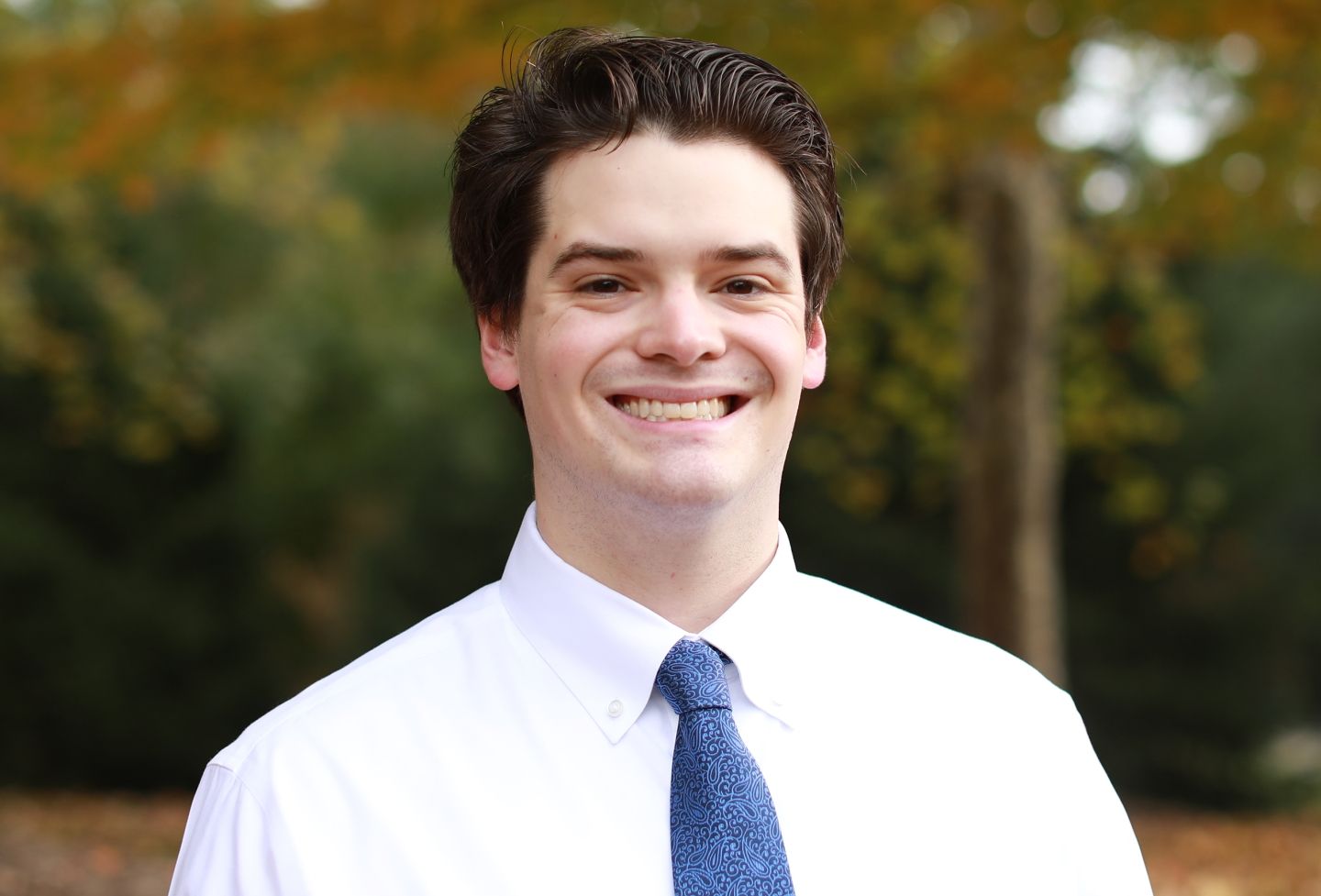LGBT Advocates Should Take Jobs in Firms, Government First, HRC Attorney Says
Working for the government or a firm after law school may be the best way to get into Lesbian, Gay, Bisexual, and Transgender (LGBT) advocacy work down the road, according to Sharon Alexander, staff counsel for the Human Rights Campaign (HRC), the largest lesbian and gay political organization in the country, with more than 460,000 members. Sponsored by the Lambda Law Alliance and Virginia Law Democrats, Alexander spoke at the Law School Oct. 22 about the kinds of work available in LGBT political advocacy, the challenges now facing the HRC, as well as her own experience entering the world of public interest work.

Alexander said her own story of entering the LGBT advocacy world might be called "The Unlikely Activist," playing on the title of a book by her HRC colleague Candace Gingrich, who wrote about her own experiences in advocacy called "The Accidental Activist." Alexander is "unlikely" because she is a heterosexual, married Catholic woman and former military officer who stumbled into the idea that she wanted to work for gay rights while serving in the Army.
"My big soap box is that there are a boatload of good straight folks out there … who just don't know" about the problems facing the LGBT community, she said.
Alexander had planned to join the military immediately after high school but instead found herself the recipient of an Army ROTC scholarship to college. On college campuses across the country in 1992, students protested the ROTC presence because of a general post-war anathema and because of the military's discrimination toward gays.
"To me this was a big deal because if ROTC was gone, I was gone," she said. Alexander met with a leader in the college's LGBT and asked why they wanted ROTC off the campus. When the woman explained that gays weren't allowed in the military, Alexander said "'no, you're wrongI have a ton of lesbians in my battalion.'" The activist explained that the military had a formal policy against allowing gays in the military.
"I was completely ignorant of this kind of discrimination because I wasn't gay," Alexander said.
When the "don't ask, don't tell" policy passed Congress in 1993, "we kind of thought this was the intermediate step," she said, but "the '90s didn't turn out that way at all." Instead, she said, "witch hunting" increased "exponentially."
In 1997 Alexander lost a soldier from her unit when he and a soldier in her husband's company were discovered having sex. The man in her husband's company was shipped out of their station in Italy within 76 hours, but the other soldier was put on mess hall duty for a month and was exposed to "abhorrent" harassment and taunting by other soldiers.
"It completely opened my eyes to what institutional discrimination can be," Alexander said. After that, she went to law school in Colorado with a future career in mind. She obtained a job in the movement immediately following graduation, which was unusual at the time.
Alexander outlined two main routes lawyers can take in the LGBT movement — legislation (policy) and litigation. Alexander is a legislative lawyer.
"What we're doing is looking to change laws," she said. Such attorneys study legislation for potentially disadvantageous language and try to add more flexibility to allow for nontraditional families or members of the LGBT community. She noted that lawyers at HRC take a supporting role to the lobbyists and political strategists who run the organization.
"You have a support role in legislative work often that you don't have in litigation work," she said.
Litigators in the movement mount challenges to existing laws through the courts. For example, a litigator might challenge a particular state's sodomy law. Certain organizations — such as the Lambda Legal Defense and Education Fund and more localized groups like Gay and Lesbian Advocates and Defenders (GLAD), which focuses in the New England area — concentrate solely on litigation. Alexander said many litigators work in smaller organizations that take specific discrimination cases. Additionally, some solo practitioners "make amazing advances in their cases that a lot of people don't always recognize."
In time, LGBT advocacy attorneys may move on to jobs in the organization such as communications director or executive director.
Alexander warned that although some lawyers are hired into public interest immediately after law school, firm or government jobs can offer training and mentoring that is not available in public interest jobs.
"I don't have the volume of work or the variety of work that I need" to work in another field, she said, advocating the importance of starting broad and narrowing your career focus later. "I can't overestimate firm experience and government experience directly out of law school."
Alexander said she tends to hire summer interns in their first year because during the second summer students should work with a company that is more likely to hire them full-time. She hires four people for summer positions out of the 100 or so that apply.
The Department of Justice civil rights department, the Department of Labor, and other government offices can offer valuable experience for future LGBT lawyers. "Get those jobs first," she said, and they will help you later in your career. Tax lawyers, for example, are needed in the movement now because "understanding tax laws and figuring out ways to open doors to nontraditional families is very important." Benefits law (for nontraditional couples) and criminal law (for hate crimes) are also useful, she said.
Working on legislation, lawyers face intellectually satisfying challenges, Alexander said, outlining the numerous areas of legislative legal work HRC is involved in. One of the main pieces of legislation HRC has helped publicize and build support for is the Employment Non-Discrimination Act (ENDA), which would make discrimination on the basis of sexual orientation illegal in the workplace (now legal in 38 states). The legislative attorneys at HRC are also involved in immigration laws, because immigrants may have trouble bringing their partners to the United States, and hate crimes legislation. Sometimes such specialized work is contributed by lawyers who offer their services pro bono in addition to their regular job. "We completely couldn't get by without them," she said.
While the gay rights movement has slowly been gaining support in Congress, the legislative arm has been stymied in their attempt to pass ENDA, originally introduced in 1994. In 2002 Sen. Tom Daschle (D-SD) promised a Senate vote on the bill before the 107th Congress ended, but with legislators tied up with worries about Iraq, the election and an un-passed budget among other issues, Alexander said ENDA probably will not pass this year.
"It has been a long, long row to hoe," Alexander said. Although polls show that a majority of Americans support such legislation, Republican leadership in the House has not been friendly to it. "It's extremely bare … and we can't seem to pass it."
Similarly, the Local Law Enforcement Enhancement Act, which would allow violent crimes based on sexual orientation or gender traditionally under local or state jurisdiction to be tried in federal court as hate crimes, is stalled in Congress because some legislators fear that all rapes would then come under federal jurisdiction. Hate crimes based on race, national origin, or religion can already be tried by federal courts, Alexander said.
"It's designed to recognize that certain kinds of crimes are designed to intimidate a certain group of people," Alexander explained, noting that a random murder of a gay person would not qualify for hate crime status, but a murderer who used epithets regarding the victim's sexual orientation would qualify.
Alexander said Republican attorney general John Ashcroft was the first to prosecute a hate crime against a gay person in a case where two lesbians were murdered in Shenandoah National Park. Because the murder happened in a national park, the feds had jurisdiction and
Ashcroft could invoke the Hate Crimes Sentencing Enhancement Act, which applies only to federal crimes.
Despite these small gains, "a lot of people are starting to wonder, is there another strategy that we need to start thinking about?" Alexander said that perhaps putting more bills out there would induce politicians to choose at least one of the bills, rather than the current all-or-nothing strategy.
Although Congress is bogged down with high-profile issues, states and localities have been more open to legislation, Alexander said. HRC's field office is growing partly because working on the state or local level has yielded more positive results.
"The state and local level is the battlefield we're making the most gains on now," she said. "Cutting edge things are being done in the states."
Founded in 1819, the University of Virginia School of Law is the second-oldest continuously operating law school in the nation. Consistently ranked among the top law schools, Virginia is a world-renowned training ground for distinguished lawyers and public servants, instilling in them a commitment to leadership, integrity and community service.


